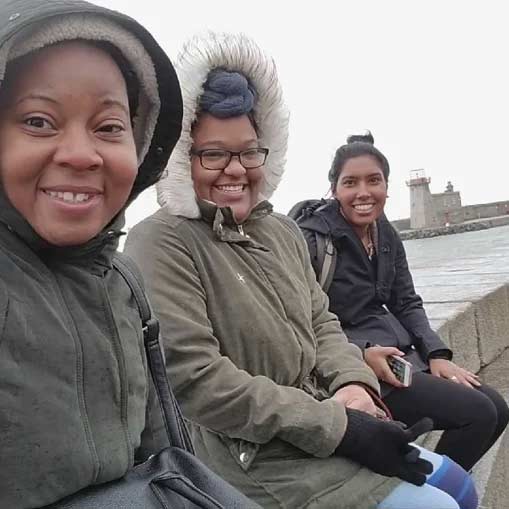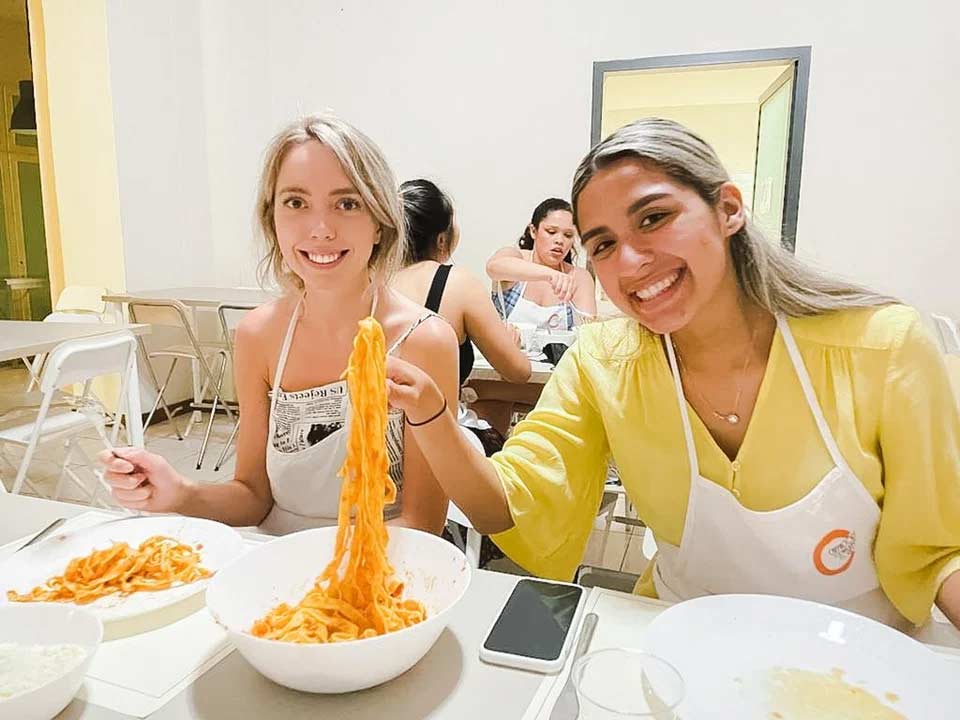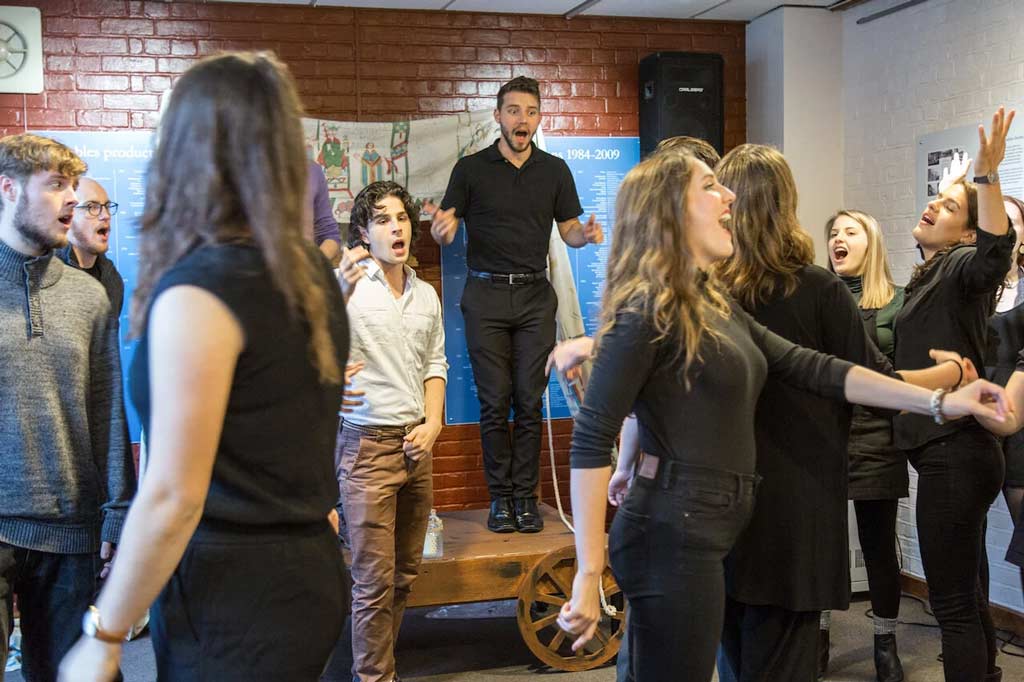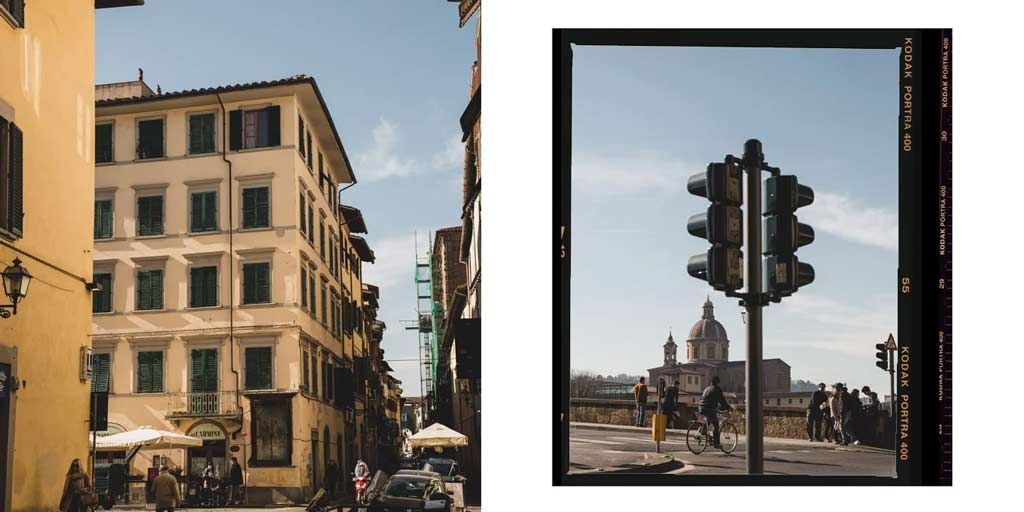Custom program development is an art and a science. As artists, program developers use creativity to design experiences that bring students to moments of insight, to see beauty in culture, to be awestruck by information, experience, and knowledge. As scientists, we test our programs, or hypotheses, and analyze what worked and what didn't, and we make strategic adjustments for the next program that runs (a more informed hypothesis). As a custom program developer, I analyze programs that we've customized and run before, brainstorm solutions to improve the program for the next group of students (and faculty), and remember to embrace the mission-driven pulse that provides greater meaning to my work.

The cliff walks in Howth are a popular excursion destination for custom programs in Dublin.
Through my analysis of previously run programs, I found a trend of feedback from on-site teams: students are tired. Students are burning out. Programs are designed to focus on go-go-go, photo opportunities, checking boxes off a list, and cramming every minute of the experience with pre-planned activities. Mental health is of increasing concern. Students struggle to be present, to connect, and battle anxiety more than ever before.
My hypothesis is: this isn't sustainable.
How did we get here? Health and safety, partially: we think that keeping students engaged means keeping them busy, and that keeping students busy means that we keep them out of trouble. In part, maybe we want to keep up as the world changes around us. We see a generation of students addicted to the ever-changing screens of TikTok and as study abroad practitioners we think "we have to keep up. We have to keep putting something in front of them to keep their attention."
But while we're keeping up with the times, consider some other trends that have arisen from the pandemic - anti-productivity culture, quiet quitting, setting boundaries, minimalism, debating whether or not being "busy" is actually a good thing. A soundbite of a man defining an Italian expression went viral in 2022: Dolce Far Niente: The sweetness of doing nothing. If we look around American culture, we see armies of people challenging deeply rooted cultural views. Less is more. Are we on to something here?
Consider a similar challenge in another industry - fashion. As consumers, we want to keep on top of trends, so we buy more and more clothing, which is being produced cheaper and more quickly, which leads to poorer quality of clothing, and in turn, record amounts of waste. Fashion's solution was "slow fashion." This movement is focused on quality-made products that are made to last, making them higher quality and more sustainable. This trend is on the heels of similar movements leading the way to sustainability; most significantly, the slow food movement. As a response to fast food, slow food promotes local and sustainable cooking and has infused the global culture with a newfound respect for quality food and care for the planet.

Students attending a cooking class in Florence.
We think our students are making the most out of each opportunity we present them with, but by adding too much to our itineraries, we might be devaluing each one. As a thematic approach to program design, consider: Slow Study Abroad. Similar to slow fashion or slow food, slow study abroad places emphasis on quality rather than quantity. Slow study abroad is a movement to intentionally develop and implement programs that focus more on reflection and cultural immersion than hitting all the inclusions possible. With particular care taken on mental health, this type of program includes more walks, meals, staying local, visiting libraries and other civic institutions, community service and volunteering, family and peer connection.
Slow travel is an increasingly popular trend across educational travel and tourism industries. Joana Dickinson offers a definition of slow travel as "an approach to travel that emphasizes connection to local people, cultures, food and music. It relies on the idea that a trip is meant to educate and have an emotional impact, while remaining sustainable for local communities and the environment."

The global city of London offers many opportunities for custom programs that allow students to engage with its famed theater community.
Benefits of slow study abroad would include improved mental and physical health for participants, deeper connections and memories, and greater learning outcomes. Slow study abroad, regardless of the program length, might also come with the added bonus of a lower program fee - with fewer inclusions built in, a program focused on community and reflection may be more financially accessible. Slow study abroad is a framework that could be applied to multiple disciplines: fashion, arts & humanities, mindfulness, language learning, culinary arts, and so on. Maybe slowing down is cool, and it's what we all need.
Let's test this hypothesis, scientists, and make some beautiful art! Request a custom proposal from us that meets your program needs.








